Alphabet Chair John Hennessy shared his insight into technology transfer with TMTPost Group"s founder Zhao Hejuan.
BEIJING, December 13 (TMTPOST) - Google’s parent company Alphabet chair John Hennessy proposed a new concept in technology transfer that revolving around people in his dialogue with TMTPost Group’s founder.
When asked about how scientists and entrepreneurs work together to turn a lab discovery into a product, Hennessy, a computer scientist with expertise in chip design, said that people become “the way” in which technology is transferred from a laboratory to an assembly line.
“You don’t transfer that technology by publications or by technology journal. You transfer with people,” he said, citing a few examples. Bill Hewlett and David Packard left Stanford University to start their computer making company in 1939. Jerry Yang and Dave Filo left to found the website of Yahoo in 1995. Larry Page and Sergey Brin left to create search engine firm Google in 1998. Michael S. Dell and several of his students left to start cloud-computing and virtualization technology company VMware in 1998.
“You can’t just write papers and assume that industry will pick up the technology. The inventors have to be part of that process,” said Hennessy, who was the president of Stanford University from 2002 to 2016.
“The university generated a lot of interesting companies which redefined the entire market, the Internet, and the World Wide Web, search in the case of Google, the personal computer in the case of Apple. Those were concepts that came out of a deep thinking about what goes on in the universities and I think they continue to play that kind of role,” he explained in detail.
In response to a question about the monopoly of U.S. tech giants, Hennessy noted that the business expansion of Silicon Valley companies is based on innovations and organic growth.
He observed that companies like Google, Amazon and Apple grew into large companies by “innovating”, not by acquisitions. “Acquisitions are usually the place in which you worry about monopolies. You worry about somebody buying out a company. A classical example in the U.S. was Standard Oil, which bought out the railroads and unified railroads with the oil business and created a monopoly between the two,” he elaborated.
“But Google, Amazon and Apple have primarily been internal innovations where the companies have grown organically because they"ve invested in technology and those have been the secret of their success,” he pointed out. “I think that creates an interesting dilemma because you don"t want to discourage companies from innovating by making organic investments in the company. That would be a terrible thing for innovation in the contrary.”
“Great companies are built around innovation. Capital is the tool that you use to promote that innovation,” he added.
The computer scientist also contrasted the China model with the U.S. model in terms of technology innovation and replication. He lauded China’s capability in manufacturing.
“China has been exceptional in the development, particularly around manufacturing technologies and high-tech manufacturing. They have done a remarkable job, not only in figuring out how to make that manufacturing efficient, but to do it at very high-quality levels. And they manage the supply chain really well. Right now we see the whole world is in angst over supply chain issues but I know China is doing quite well.
“The U.S. is good at creating the first of something. If it"s in software, then it"s pretty easy to replicate it. But if it involves hardware, it"s a lot harder to replicate because it involves a manufacturing aspect. So I think both of those models can learn from each other and get a better understanding of how to become the initial innovator in the case of China or how to scale up things really efficiently something, which the U.S. outside of the software industry has struggled a bit with,” he said.
Hennessy commented that China has a highly entrepreneurial economy and technology mindset. “It"s been remarkable to watch over the last 20 years as it really has emerged and changed dramatically,” he said.
The Future of Silicon ValleyHennessy believed that the secrets of the success of Silicon Valley lied in constant innovation and the capability to catch the wave of technology when they come along.
“When I arrived at Stanford, the personal computer didn"t exist yet. It was prior to the beginning of the personal computer. There were no cell phones. There was no Internet. There was a little thing called ARPANET that a few academics used but no real Internet, no World Wide Web,” he recalled.
Hennessy joined Stanford’s faculty in 1977 as an assistant professor of electrical engineering, rising through the ranks to become Stanford University’s tenth president in 2002. He stayed in that capacity until his retirement in 2016, leading the university to become more academically competitive in a rivalry with Ivy League schools including Harvard and Yale.
Innovations, including the personal computer, engineering workstation, the Internet, the World Wide Web, mobile technologies and social media, have all generated enormous opportunities to create new technologies and deployed them, he noted.
He identified climate change, education and healthcare as some of pressing issues that require innovation to address. “These are enormous problems where I think we haven"t done everything we could do for societies around the world. So those are opportunities to innovate and create. I think the valley will continue to be a place that tries that kind of innovation and I think Google will try to do that as well,” he said.
As to the metaverse, he thought entertainment was important but that was not everything.
“The games are fine. They are an important market in their own. But it"s not the market that"s going to change the world... I want to think how we build something that really helps people learn some new skills in a different way… What technologies can we bring to deal with the issues of climate change? Those are the critical things I"d like to see us work on and to see us explore technologies for,” he said.
Hennessy has been chair of Alphabet Inc. since February 2018. Prior to that, he was an independent director at Google and Alphabet from 2007. He is also a laureate of the 2017 ACM A.M. Turing Award, along with retired UC Berkley professor David A. Patterson. In addition to his outstanding academic and leadership achievements, Hennessy co-founded chip design startup Mips Computer Systems, which was acquired by Silicon Graphics International in 1992.

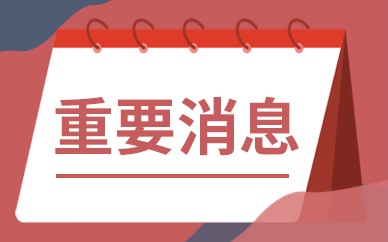















































 营业执照公示信息
营业执照公示信息